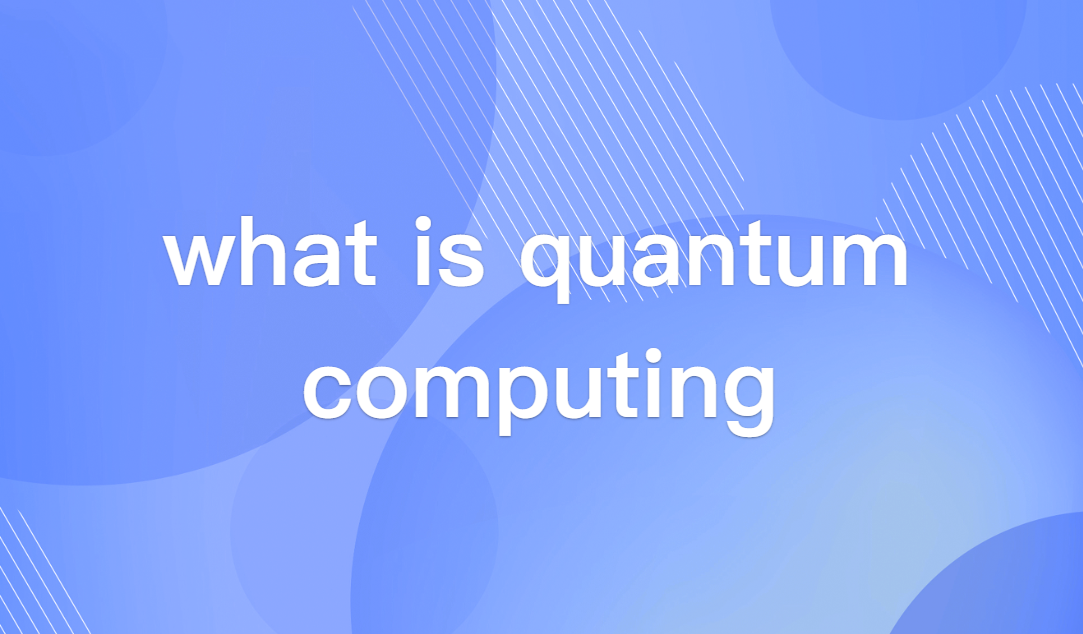What is Quantum Computing? Demystified for Beginners
what is quantum computing, really? you’re not alone. It’s a hot topic splashed across headlines, from Google’s quantum supremacy claims to IBM’s latest breakthroughs. Now, imagine a computer that could crack problems in seconds that would take today’s supercomputers thousands of years. Sounds like sci-fi, right? But that’s the mind-blowing promise of quantum computing. In this guide, we'll cover the basics, why it matters for your life, and how it’s already sneaking into real-world apps. Let’s dive in!

What is Quantum Computing?
At its core, what is quantum computing? Think of it as a radical reboot of how computers process information. Traditional computers—the kind you’re using right now—rely on bits. These bits are like tiny light switches: they’re either 0 (off) or 1 (on). Every email, TikTok scroll, or Netflix binge boils down to billions of these binary choices. But quantum computing? It ditches the light switch for something way weirder: quantum bits, or qubits.
Qubits leverage the wild rules of quantum mechanics. Thanks to superposition, a qubit isn’t stuck as just 0 or 1—it can be both at the same time. Picture a spinning coin: while it’s in the air, it’s not heads or tails—it’s a blur of possibilities. Add entanglement (where qubits link up instantly, even across distances), and you’ve got a system that processes insane amounts of data in parallel. That’s the secret sauce behind quantum advantage: solving problems that’d choke classical machines.
Still fuzzy? Let’s get concrete. If a classical computer checks every possible route for a delivery truck one by one (like trying every road on a map), a quantum computer explores all routes simultaneously. That’s why folks call quantum computing explained as “computing on steroids”—but it’s not always faster. It shines for specific, complex tasks, like simulating molecules for new medicines.
Quantum Computing vs. Classical Computing
You might be thinking, “Okay, cool physics trick—but how does quantum computing work in practice?” Great question! The magic happens because quantum systems tackle problems differently. To make it crystal clear, here’s a quick comparison:
| Feature | Classical Computing | Quantum Computing | Why It Matters for Quantum Computing for Beginners |
|---|---|---|---|
| Basic Unit | Bit (0 or 1) | Qubit (superposition of 0 and 1) | Qubits handle multiple states at once—no more binary limits! |
| Processing Style | Sequential (one task at a time) | Parallel (many tasks simultaneously) | Solves optimization problems exponentially faster. |
| Best For | Everyday tasks (browsing, documents) | Complex simulations, cryptography, AI | Real-world applications quantum computing thrive here. |
| Current Speed | Fast for linear tasks | Quantum advantage for niche problems | E.g., Shor’s algorithm cracks encryption in hours vs. millennia. |
| Real-World Use | Your phone, laptop, cloud servers | Drug discovery, climate modeling, finance | Benefits of quantum computing are already emerging! |
This isn’t just theory. In 2019, Google claimed quantum supremacy when its Sycamore processor solved a problem in 200 seconds that’d take a supercomputer 10,000 years. The point? Quantum computing defined isn’t about replacing your MacBook. It’s a specialized tool for headaches classical computers can’t handle.
Where Will Quantum Computing Actually Change Your Life?
Let’s cut through the jargon. You’re probably wondering, “What’s in it for me?” I get it—quantum computing explained can feel abstract. But its real-world applications quantum computing enables are shockingly tangible:
Healthcare Revolution: Imagine designing life-saving drugs by simulating how molecules interact at the quantum level. Companies like Roche are already using quantum systems to model protein folding for Alzheimer’s treatments. No more guessing games—just faster cures.
Unbreakable Security (and New Threats): Quantum computers could crack today’s encryption (yikes!), but they also birth quantum cryptography. Think “quantum key distribution”—hacks become physically impossible. Your future online banking? Safer than Fort Knox.
Climate & Energy Wins: Optimizing power grids for renewable energy or creating super-efficient batteries. Volkswagen used quantum algorithms to slash traffic congestion in Lisbon by 20%—proving benefits of quantum computing aren’t just lab dreams.
AI on Steroids: Training machine learning models in minutes instead of weeks. Startups like Zapata Computing are partnering with airlines to optimize flight paths, saving millions in fuel.
Sure, we’re not all getting quantum laptops yet (hardware is finicky—qubits need near-absolute-zero temps!). But cloud access via IBM Quantum or AWS Braket means developers today can experiment. That’s the beauty of quantum computing for beginners: you don’t need a lab coat to play along.
Qubits are error-prone, scaling is hard, and we’re years from widespread use. Governments are pouring billions into R&D, and giants like Microsoft and Google are racing to build “fault-tolerant” systems. It’s not about replacing your iPhone—it’s about solving problems we once thought impossible. From curing diseases to fighting climate change, this tech could reshape our world faster than the internet did.